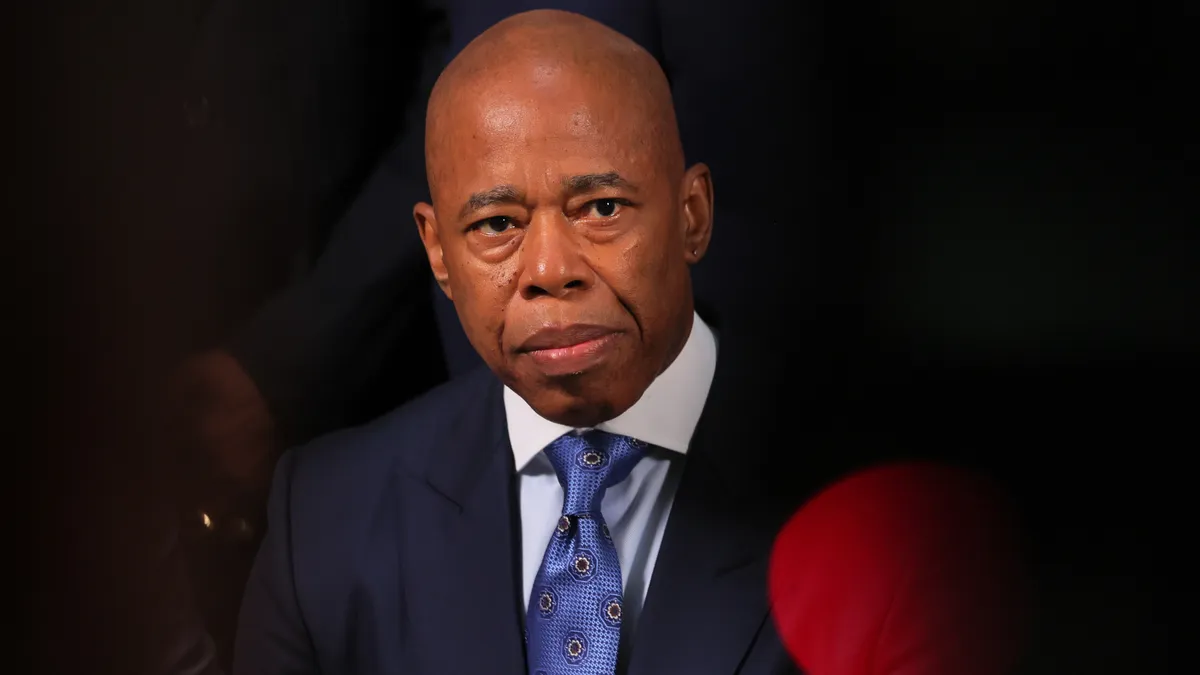Dive Brief:
- New York City would require all ride-hailing vehicles to be zero-emission or wheelchair-accessible by 2030 under proposed rules it announced Wednesday.
- Starting next year, the city would require 5% of high-volume, for-hire trips — which include Uber and Lyft but exclude taxis — to be in zero-emission or wheelchair-accessible vehicles, with the proportion growing in steps each year until reaching 100% in 2030.
- Both Uber and Lyft had previously committed to going all-electric by 2030.
Dive Insight:
New York City Mayor Eric Adams first proposed the new rules in his January 2023 State of the City address. In Wednesday’s press release, he said, “By championing the integration of zero-emission vehicles and wheelchair-accessible transportation, we are cutting dirty emissions and guaranteeing equitable transportation opportunities for every New Yorker.”
While acknowledging that taxi and ride-hailing drivers face more respiratory health issues from long hours on the city’s roads, the New York Taxi Workers Alliance objected to the costs of complying with this proposed rule. Bhairavi Desai, executive director of the NYTWA, said in a statement that the announcement “falls short as it creates a mandate controlled by billion-dollar companies while costs are still shifted onto their drivers.”
Uber and Lyft offer drivers some incentives towards electric vehicles, but they may not offset the higher cost of an EV. Desai said, “Drivers will have to buy new cars faster, yet there are no new monies being announced. Rebates are insufficient, and tax credits may reduce tax liabilities, but [they will] not give actual cash in the form of refunds.”
According to the New York City Taxi and Limousine Commission, its licensed taxi and ride-hailing vehicles are responsible for about 4% of the city’s vehicle emissions. The city’s most recent climate plan mandates that private parking lots and garages install EV charging by 2030 with the goal that every city resident eventually lives within 2.5 miles of an electric vehicle charging station.
New York City Department of Transportation Commissioner Ydanis Rodriguez said in a press release, “Electric vehicle adoption is a crucial piece of reducing New York City’s emissions. We are working closely with the private sector to equitably increase public charging access and inspire greater adoption and sustainable mode shifts across industries.”
The public will have a chance to comment on the proposed rules at a hearing scheduled for Sept. 20. Desai said the New York Taxi Workers Alliance intends “to organize to make sure the city gets this right.”












